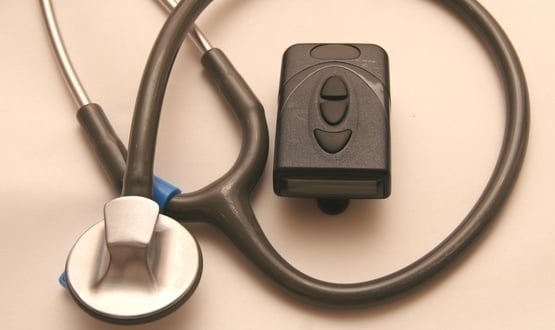East and North Hertfordshire to replace bleeps with messaging app
- 24 May 2024

East and North Hertfordshire NHS Trust has confirmed that it plans replace its bleeps system for medical staff with the messaging app Alertive before the end of 2024.
In an update on the trust’s digital strategy and roadmap, the agenda for the trust’s board meeting on 1 May 2024, says: “A new smartphone messaging app will replace all the bleeps in the trust in the coming months”.
A spokesperson for East and North Hertfordshire told Digital Health News that the bleeps system will be replaced with the app Alertive, which is designed for healthcare professionals.
Mark Stanton, chief information officer at East and North Hertfordshire, said in a statement provided to Digital Health News: “Clinicians have used bleeps to communicate with each other since the 1950s – working in a very similar way to a pager.
“While this used to be a highly effective way to alert a clinician about an emergency issue, technology has developed significantly in recent years.”
He added: “Using Alertive, users will be able to send urgent notifications to their colleagues when they need support, enabling them to instantly provide more information about a patient’s condition than is currently possible through a bleep.
“We expect Alertive to improve communication between staff by providing a clearer and more concise messaging service for teams and departments across the trust, supporting more collaborative and aligned patient care.”
According to a statement on the Alertive website, 24.4% of bleeps interrupt a critical clinical task and until the bleep has been answered the recipient doesn’t know who is contacting them or what it is regarding.
The Alertive app’s multiple communication modes, including critical alerts, messaging, the sharing of tasks and the use of attachments are designed to provide clearer visibility of priorities and improved communication between staff.
Somerset NHS Foundation Trust launched an out-of-hours project in 2021 and introduced a hospital task management solution from Infinity Health, enabling it to reduce its night-time, non-emergency bleeps by more than 13,400 a year.




